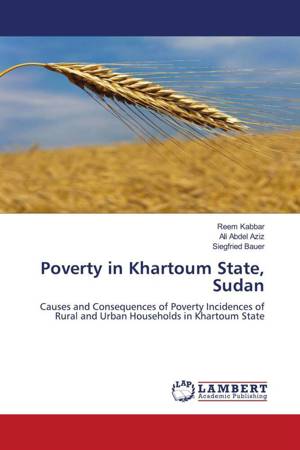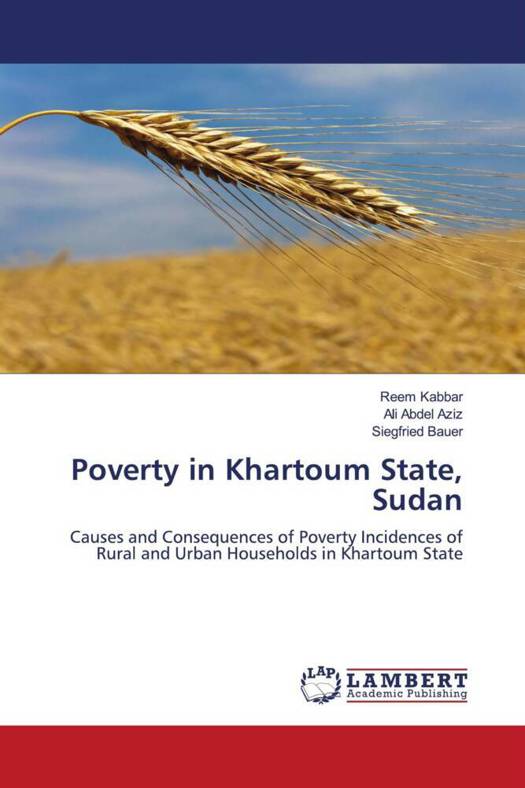
- Afhalen na 1 uur in een winkel met voorraad
- Gratis thuislevering in België vanaf € 30
- Ruim aanbod met 7 miljoen producten
- Afhalen na 1 uur in een winkel met voorraad
- Gratis thuislevering in België vanaf € 30
- Ruim aanbod met 7 miljoen producten
Zoeken
Poverty in Khartoum State, Sudan
Causes and Consequences of Poverty Incidences of Rural and Urban Households in Khartoum State
Reem Kabbar, Ali Abdel Aziz, Siegfried Bauer
Paperback | Engels
€ 48,45
+ 96 punten
Omschrijving
Poverty is a complex multidimensional problem, Sudan, suffered from political and economic instability as well as ecological problems, which aggravate the situation by having high poverty rate in comparison to the neighboring countries Poverty in the Sudan is deeply ingrained and is largely rural. Excessive and continued rural migration pressure to Khartoum State had exceeded social services capacity with concomitant increasing poverty in the urban centers of the state. Low-income employment relationship and low level of education of household heads had bad effects on their economic and social situation. Large numbers of population in the state, high spending on food items in the rural and urban areas in Khartoum state with under nutrition. People with low income included government employees. Low-income people who fell below poverty line were in rural Khartoum areas. Inequity in income distribution concentrated in the state, especially in Khartoum north areas. Shortage in access to basic needs service, particularly drinking water, free education and insurance medical services. Negative coping mechanisms have been used by most of the respondents and had complicated poverty effects
Specificaties
Betrokkenen
- Auteur(s):
- Uitgeverij:
Inhoud
- Aantal bladzijden:
- 84
- Taal:
- Engels
Eigenschappen
- Productcode (EAN):
- 9783844391640
- Verschijningsdatum:
- 28/06/2011
- Uitvoering:
- Paperback
- Afmetingen:
- 150 mm x 220 mm
- Gewicht:
- 136 g

Alleen bij Standaard Boekhandel
+ 96 punten op je klantenkaart van Standaard Boekhandel
Beoordelingen
We publiceren alleen reviews die voldoen aan de voorwaarden voor reviews. Bekijk onze voorwaarden voor reviews.











